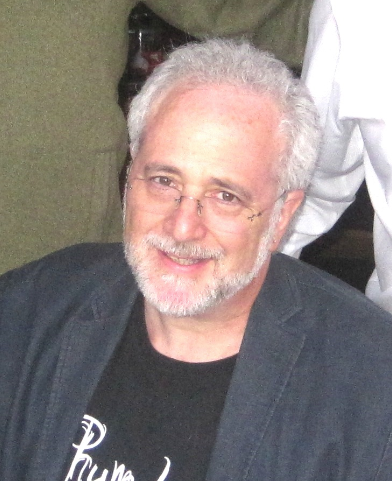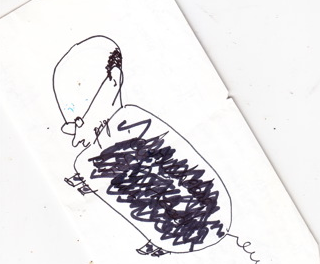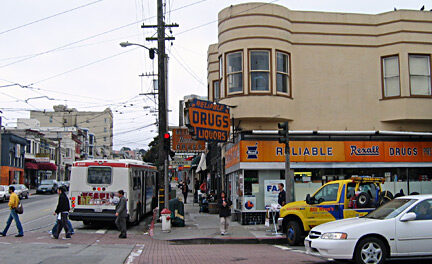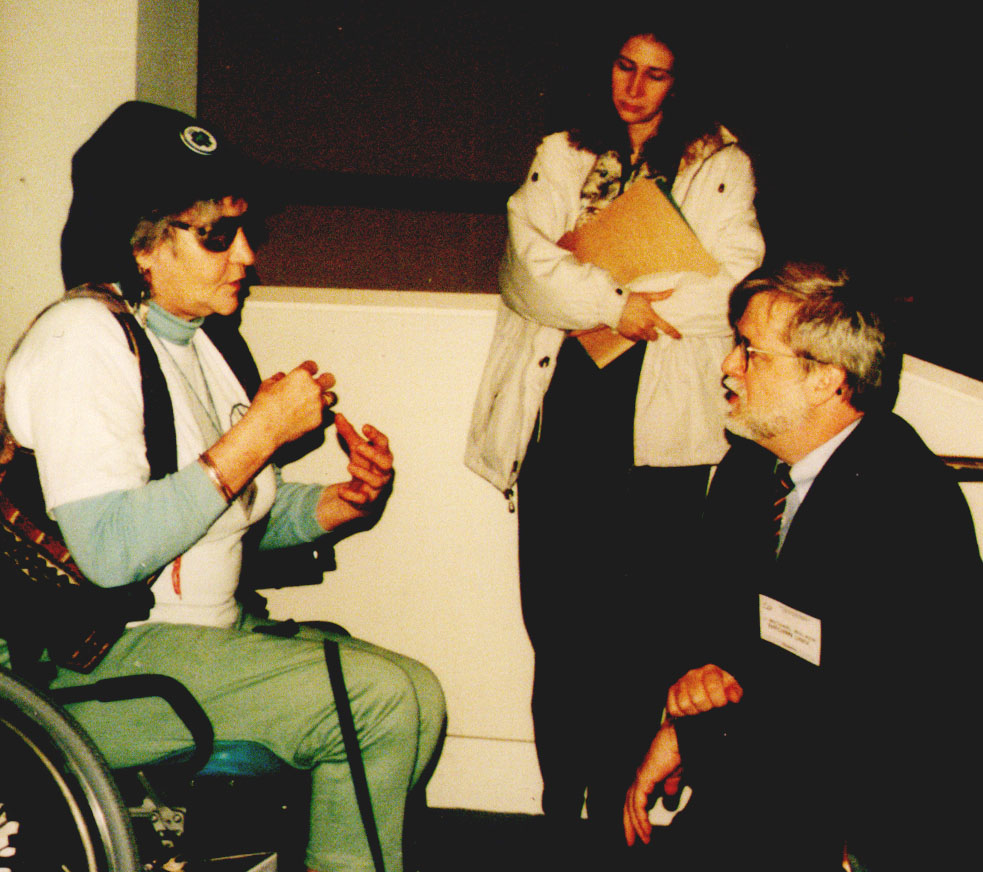A Conversation with Supervisor Terence “Kayo” Hallinan (11/13/91 in the Anderson Valley Advertiser)
AVA: Your plan was to tax The Giants and the 49ers to help pay for high school sports?
Hallinan: Yes –high school and middle school sports. And it would make an interesting article how these professional teams –the Giants less so because they support a farm operation– but here are these professional football teams making millions of dollars, and they fought the idea of paying anything into school sports like tigers.
AVA: No kidding. That didn’t come across in The Chronicle or The Examiner.
Hallinan: I don’t think it did. Because I was trying to not make it a bitter fight or anything.
AVA: You’d think these teams would want to help fund school sports as a p.r. move.
Hallinan: That’s what I thought. I originally offered it to them. I said ‘Why don’t you guys take this?”
AVA: You suggested they do it as a p.r. gesture. Hallinan: Right. AVA: Incredible that they wouldn’t go for it. How much money did the program need?
Hallinan. One million, fifty-nine thousand dollars —25 cents on Giants tickets, 75 cents on 49er tickets.
AVA: Paid for by the ticket buyers… So the teams were worried that ticket sales might be affected.
Hallinan: Well, they’re defending their base: 75% of their customers don’t live in San Francisco. I only heard from one San Franciscan who objected to it. He had 10 season tickets and he said, “I’ll have to sell one more game.” I got quite a few calls from out of the county, from people saying, “Hey, you can’t take care of your own schools, why should we have to pay for them?” So the teams were defending their fans against the tax. And in addition, of course, the more taxes there are, the harder it makes it for them to raise their ticket prices.
AVA: They should have just written out a check and said ‘This community supports us, we’re going to support our community.’
Hallinan: Not only wouldn’t they do that, I couldn’t even get them to pick up a piece of it.
AVA: Who were the key guys you were dealing with? Hallinan: I met with everybody: Policy for the 49ers…
AVA: What’s he like?
Hallinan: Gruff –just like you would expect. AVA:
What about DeBartolo?
Hallinan: I think I started out talking to him and he said talk to Policy. I phoned him in Ohio and then he came out and he came to see me.
AVA: Policy is the guy Ronnie Lott blames for trading him. I read an excerpt of his book. He didn’t like the guy at all but you could see he was trying to be restrained.
Hallinan: Right. Well, that’s the way I treated him, too. I didn’t want to make it a big fight between professional sports and the city. We wanted to give the image that we were all cooperating for the sake of the kids. But in fact they both fought me like mad. The 49ers harder than the Giants.
AVA: Well why don’t you blow the whistle on them, Kayo?
Hallinan: Well… They threatened me to do this and do that, and finally, after I had the whole thing in place, they brought out their ace in the hole, which was that the NFL prohibits surtaxes being passed on to the fans.
AVA: Who has jurisdiction over who? The city has jurisdiction over the team, not vice versa.
Hallinan: Their point was that they would have to pay it themselves because NFL policy prohibits them from passing it onto the fans.
AVA: Is a million bucks that much money to them? Hallinan: A million bucks off the top is a lot of money. But when you pass it on at 25 cents a ticket or 75 cents a ticket, it isn’t.
AVA: Kayo, you’re thinking in their terms. There’s something really sick about professional sports. It reduces everybody to a spectator –except for 22 gifted giants. Even if you got to play in high school, or college, sooner or later you’re not going to make it, you’re going to feel not-good-enough… There’s a hidden insult in a system that allows a few to participate and turns millions into fans, sitting around all week-end watching the tube… And you know, Kayo, that I’m a hoopster and a sports addict myself, but at some point you’ve got to step back and see how sick the whole thing is. If this planet survives, people are going to look back on our period and be appalled. They’ll look back at file clerks in the cities and say, ‘How horrible it must have been for those people penned in those airless offices without even a chance to use their bodies!’ Urban life is almost totally sedentary. Most people don’t get to play ball or exercise or do anything.
Hallinan: And there wouldn’t have even been any high school or middle school sports if it hadn’t been for this thing.
AVA: Right on, Kayo. But what if you started talking on this level? ‘The right to use your body is a fundamental human right that people in the cities have lost.’ It’s a basic right that has been taken away from us, just like the right to breathe clean air and drink pure water. These are rights that people enjoyed throughout human history that have been lost in the name of “economic growth” and “development” and “progress.”’ The right to use your body is more fundamental than the right to vote. And we’ve lost it. And the culture is so deceitful that we’re hardly conscious that we’ve lost it. You know what I’m saying?
Hallinan: I don’t disagree with you. AVA:
Do you think that perspective could be introduced, somehow, into the political dialog? Could you talk about the right of people to exercise, to use their bodies? We’ve lost this in city life. It’s got to be restored. I think you’d win a lot of respect and a lot of votes if you started talking about the right to a healthy life. Somebody, sooner or later, has got to start talking about the fundamental structural problems of our society.
Hallinan: Well we’re talking on two different levels here. I was talking about getting this thing done. I was operating in the short term. I wanted it done and it was much easier to do 25 cents on the ticket and 75 cents on the ticket than to tax the Giants and the 49ers a million dollars.
AVA: I know, Kayo. I think you did good. But it seems like every year the politicians are making short-term adaptations, scraping together enough money to fund this or that necessary program, and the overall situation continues to deteriorate…Who was involved for the Giants?
Hallinan: Corey Busch. The Giants were a little better because you did appreciate that they were a hometown team. Because they were saying, ‘You’ve really got us between a rock and a hard place on this one.’ Or, ‘Can’t we do it some other way?’ Or, ‘Can’t it be voluntary?’ And once they realized that I was doing it anyway –I had lined up the votes on the board and the mayor’s support and I had talked to the comptroller and the superintendent of schools– once they realized I had it all lined up, they offered to make a deal. They actually said, sort of in surprise: “you’re doing this anyway, aren’t you?” I said, “It’s a done deal.” One guy put out his hand like he was a kid in school who’d been caught doing something wrong, like I was supposed to slap him on the wrist.
AVA: How did it end? Where do things stand now in terms of school sports?
Hallinan: Right now there are school sports. They’re paid for with a million, fifty-nine thousand dollars out of the general fund and the general fund will be repaid out of an increase in the admissions tax, which I did instead of making it a surtax. I just raised the stadium’s admissions tax, which already existed to pay for upkeep of the stadiums. The schools told us they needed $1,059,000. We analyzed how many tickets they were going to sell and somebody crunched the numbers and said ‘2.6%’ And that’s what it would have been; but the professional teams, realizing we were going ahead and they couldn’t stop us, said ‘Okay, make it 25 cents and 75 cents. But make it start next year.’ Which I agreed to do because next year’s money will come in before this year’s fiscal cycle (for the city) ends. So it’s one-year now. If we get the school tax through, I won’t push it next year. But if we don’t get the school tax through then I’ll do it another year. I’ll try to broaden it by including The Sharks.
AVA: (Sharks owner) George Gund might have a more enlightened p.r. sense than Carmine Policy.
Hallinan: I plan to contact him.




